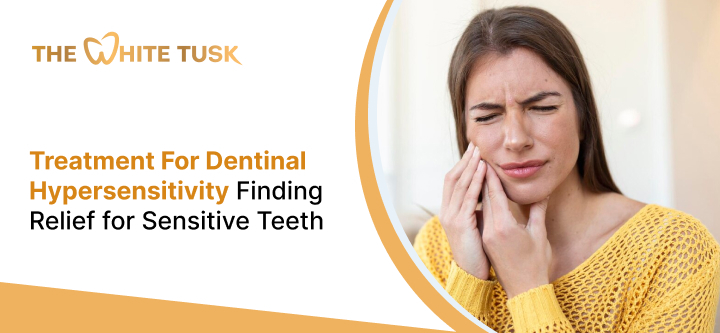
Dentinal hypersensitivity, commonly referred to as tooth sensitivity, affects millions of people worldwide. It is characterized by sharp pain or discomfort in the teeth, particularly when consuming hot, cold, sweet, or acidic foods and beverages. This condition can significantly impact daily life. Understanding the causes of dentinal hypersensitivity and exploring effective treatment options can help individuals find relief and regain their comfort.
Dentinal hypersensitivity occurs when the underlying layer of the teeth, known as dentin, becomes exposed. This exposure can result from various factors, including gum recession and tooth sensitivity, enamel erosion, and dental procedures. The tubules in the dentin allow stimuli to reach the nerve endings, leading to the pain sensation associated with this condition.
Individuals experiencing dentinal hypersensitivity typically report:
Recognizing these signs of dentinal hypersensitivity is the first step toward seeking treatment.
One of the most accessible treatments for tooth sensitivity is desensitizing toothpaste. These products contain compounds like potassium nitrate or strontium chloride that help block nerve signals associated with pain. Regular use can significantly reduce sensitivity over time, showcasing the effectiveness of desensitizing toothpaste.
Fluoride is well-known for its cavity-fighting properties, but it can also help strengthen enamel and reduce sensitivity. Dental professionals often recommend in-office fluoride treatments or the use of fluoride varnish to help alleviate symptoms.
Applying a dental sealant can protect exposed dentin and prevent stimuli from reaching the nerves. Sealants are thin, protective coatings applied to the surfaces of teeth, creating a barrier against sensitivity.
In situations of extreme gum recession, a gum graft could be needed.This surgical procedure involves taking gum tissue from another part of the mouth and attaching it to the affected area. This not only helps cover exposed roots but also enhances the overall health of the gums.
Composite bonding can provide an effective solution for those with exposed dentin due to cracks or cavities. A dentist applies tooth-colored resin to the affected area, sealing it off from external stimuli and restoring the tooth’s appearance.
Incorporating certain lifestyle changes can also help manage dentinal hypersensitivity:
For immediate relief, consider home remedies for dentinal hypersensitivity, such as rinsing with salt water or using a warm compress. Over-the-counter products like mouth rinses specifically designed for sensitive teeth can also provide temporary comfort.
In more severe cases, a dentist may recommend professional treatments for tooth sensitivity, such as:
Maintaining regular dental check-ups is essential for managing dental health. Dentists can identify early symptoms of tooth sensitivity, including signs of gum recession, enamel erosion, or other issues that could lead to sensitivity. Early intervention can prevent worsening symptoms.
Dentinal hypersensitivity can be a distressing condition, but numerous effective treatments are available to help alleviate symptoms. From the best toothpaste for sensitive teeth to professional dental procedures, individuals have various options to choose from. It’s essential to consult with a dental professional to determine the best course of action based on individual needs. By understanding dentinal hypersensitivity, recognizing the symptoms, and exploring treatment options, individuals can regain comfort and confidence in their smiles. Remember, proper oral hygiene practices and regular dental visits are crucial for preventing and managing dentinal hypersensitivity.
Dentine hypersensitivity is treated with desensitizing toothpaste, fluoride treatments, and dental sealants.
Over-the-counter desensitizing agents and prescription fluoride gels are commonly used.
The best treatment includes using desensitizing toothpaste and undergoing professional dental treatments.
Fixing dentine hypersensitivity typically involves identifying the cause and using appropriate treatments like desensitizing products.
While dentine sensitivity can often be managed, depending on the underlying cause, it may not always be completely cured.
Current management includes the use of desensitizing toothpaste, fluoride applications, and lifestyle modifications.
Dentine hypersensitivity is usually not severe but can cause discomfort and impact quality of life.
To stop sensitive teeth pain immediately, apply a cold compress and use over-the-counter pain relief if needed.
Toothpaste containing potassium nitrate or strontium chloride is effective for dentin hypersensitivity.
Yes, rinsing with salt water can help soothe sensitive teeth and reduce inflammation.